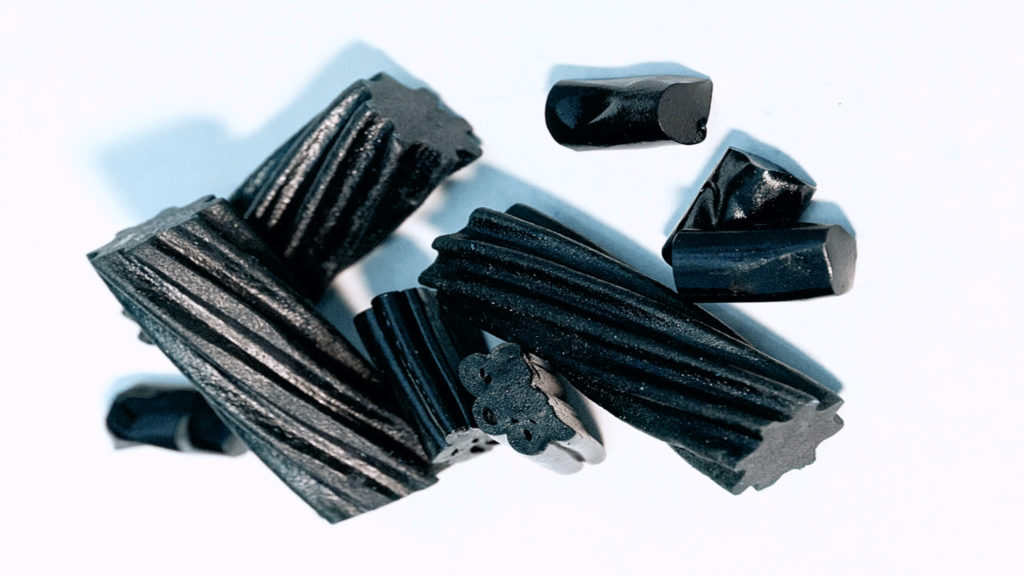 As it turns out, you really can overdose on candy—or, more precisely, black licorice.
As it turns out, you really can overdose on candy—or, more precisely, black licorice.
Days before the biggest candy eating holiday of the year, the Food and Drug Administration (FDA) encourages moderation if you enjoy snacking on the old fashioned favorite.
So, if you’re getting your stash ready for Halloween, here’s some advice from FDA:
If you’re 40 or older, eating 2 ounces of black licorice a day for at least two weeks could land you in the hospital with an irregular heart rhythm or arrhythmia.
FDA experts say black licorice contains the compound glycyrrhizin, which is the sweetening compound derived from licorice root. Glycyrrhizin can cause potassium levels in the body to fall. When that happens, some people experience abnormal heart rhythms, as well as high blood pressure, edema (swelling), lethargy, and congestive heart failure.
FDA’s Linda Katz, M.D., M.P.H., in 2016, reported that the agency received a report of a black licorice aficionado who had a problem after eating the candy. And several medical journals have linked black licorice to health problems in people over 40, some of whom had a history of heart disease and/or high blood pressure.
Katz says potassium levels are usually restored with no permanent health problems when consumption of black licorice stops.
Licorice, or liquorice, is a low-growing shrub mostly grown for commercial use in Greece, Turkey, and Asia. The National Institutes of Health (NIH) says the plant’s root has a long history of use as a folk or traditional remedy in both Eastern and Western medicine. It has been used as a treatment for heartburn, stomach ulcers, bronchitis, sore throat, cough and some infections caused by viruses, such as hepatitis; however, NIH says there are insufficient data available to determine if licorice is effective in treating any medical condition.
Licorice is also used as a flavoring in food. Many “licorice” or “licorice flavor” products manufactured in the United States do not contain any licorice. Instead, they contain anise oil, which has the same smell and taste. Licorice root that is sold as a dietary supplement can be found with the glycyrrhizin removed, resulting in a product known as deglycyrrhizinated licorice, or DGL, NIH says.
If you have a fondness for black licorice, FDA is offering this advice:
- No matter what your age, don’t eat large amounts of black licorice at one time.
- If you have been eating a lot of black licorice and have an irregular heart rhythm or muscle weakness, stop eating it immediately and contact your healthcare provider.
- Black licorice can interact with some medications, herbs and dietary supplements. Consult a health care professional if you have questions about possible interactions with a drug or supplement you take.
If you’ve experienced any problems after eating licorice, contact the FDA consumer complaint coordinator in your area.
 A daily fish oil supplement slashed serious heart risks in dialysis patients
A daily fish oil supplement slashed serious heart risks in dialysis patients A daily dose of yogurt could be the go-to food to manage high blood pressure
A daily dose of yogurt could be the go-to food to manage high blood pressure Lipid researcher, 98, reports on the dietary causes of heart disease
Lipid researcher, 98, reports on the dietary causes of heart disease Researchers Unlock The Mystery Of The Jellybean
Researchers Unlock The Mystery Of The Jellybean